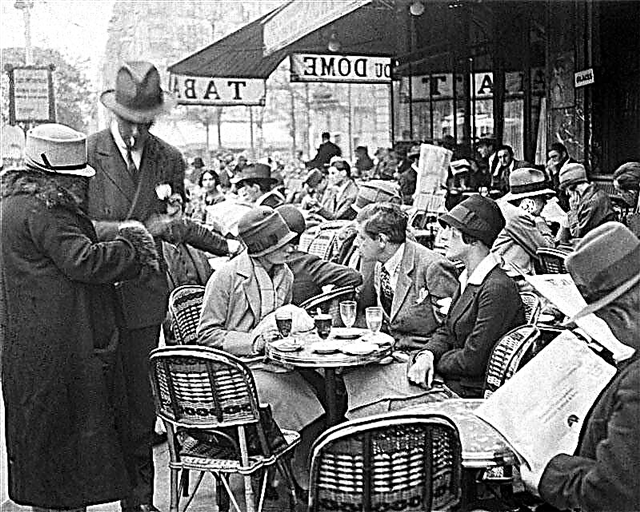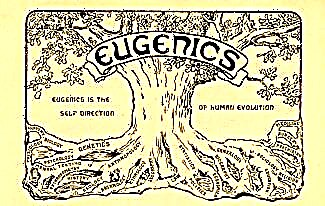Ludwig Joseph Johann Wittgenstein (1889-1951) - Austrian philosopher and logician, representative of analytical philosophy, one of the greatest philosophers of the 20th century. The author of the program for constructing an artificial "ideal" language, the prototype of which is the language of mathematical logic.
There are many interesting facts in the biography of Wittgenstein, which we will talk about in this article.
So, before you is a short biography of Ludwig Wittgenstein.

Biography of Wittgenstein
Ludwig Wittgenstein was born on April 26, 1889 in Vienna. He grew up and was brought up in the family of the Jewish-born steel oligarch Karl Wittgenstein and Leopoldina Kalmus. He was the youngest of 8 children of his parents.
Childhood and youth
The head of the family was one of the richest people in Europe. He planned to raise wealthy entrepreneurs from his sons. In this regard, the man decided not to send his children to school, but to give them home education.

Karl Wittgenstein was distinguished by his harsh character, as a result of which he demanded unquestioning obedience from all family members. This negatively affected the psyche of children. As a result, in their youth, three out of 5 Ludwig brothers took their own lives.
This led to Wittgenstein Sr. releasing and allowing Ludwig and Paul to attend regular school. Ludwig preferred to be alone, receiving rather mediocre grades and finding it extremely difficult to find a common language with other guys.
There is a version according to which Ludwig studied in the same class as Adolf Hitler. In turn, his brother Paul became a professional pianist. An interesting fact is that when he lost his right hand in the war, Paul managed to continue playing the instrument.
In his youth, Wittgenstein became interested in engineering, and then aircraft design. In particular, he was engaged in the design of the propeller. Then he began to show interest in the problem of the philosophical foundations of mathematics.
Philosophy
When Ludwig was about 22 years old, he entered Cambridge, where he was an assistant and friend of Bertrand Russell. When his father passed away in 1913, the young scientist turned out to be one of the richest men in Europe.
It is important to note that Wittgenstein divided the inheritance between relatives, and also allocated a certain part of the funds to support creative individuals. He himself settled in a Norwegian village, writing "Notes on Logic" there.
The guy's research matched ideas about language problems. He suggested treating tautology in sentences as truth, and regard contradictions as deception.

In 1914 Ludwig Wittgenstein went to the front. After 3 years he was taken prisoner. While in a prisoner of war camp, he almost completely wrote his famous "Logical-Philosophical Treatise", which turned out to be a real sensation for the entire philosophical world.
However, Wittgenstein never aspired to the fame that fell upon him after the publication of this work. During this period of his biography, he taught at a rural school, and later worked as a gardener in a monastery.
Ludwig was sure that all the main philosophical problems in his treatise had already been solved, but in 1926 he revised his views. The writer realized that the problems still exist, and some of the ideas outlined in his book are wrong.
At the same time, Wittgenstein became the author of a children's dictionary of pronunciation and spelling. At the same time, he made a number of amendments to the "Logical-Philosophical Treatise", which began to represent 7 aphorisms.
The key idea was the identity of the logical structure of language and the structure of the world. In turn, the world consisted of facts, and not of objects, as it was presented in many philosophical systems.
The entire language is nothing more than a complete description of everything in the world, that is, of all facts. Language obeys the laws of logic and lends itself to formalization. All sentences that run counter to logic do not make sense. What can be described can be done.
The treatise ended with the seventh aphorism, which reads as follows: "What is impossible to talk about is worth keeping silent about." However, this statement provoked criticism even among the followers of Ludwig Wittgenstein, in connection with which he decided to revise this doctrine.
As a result, the philosopher had new ideas that reveal language as a changing system of contexts, in which contradictions may be present. Now the task of philosophy was to create simple and understandable rules for the use of linguistic units and eliminate contradictions.
Wittgenstein's later ideas served to educate linguistic philosophy, and also influenced the character of modern Anglo-American analytical philosophy. At the same time, on the basis of his views, the theory of logical positivism was formulated.

In 1929 Ludwig settled in Great Britain, where he worked as a lecturer at Trinity College. After the Anschluss in 1938, he became a German citizen. As you know, the Nazis treated Jews with particular hatred, subjecting them to persecution and repression.
Wittgenstein and his relatives turned out to be one of the few Jews who were granted special racial status by Hitler. This was largely due to the financial capabilities of the scientist. He received British citizenship a year later.
During this time biographies Ludwig lectured in mathematics and philosophy at Cambridge. At the height of the Second World War (1939-1945), he left his scientific career to work as an orderly in one of the hospitals. After the end of the war, he left the University of Cambridge and focused on writing.
Wittgenstein worked to develop a new philosophy of language. The key work of that time was Philosophical Research, published after the death of the author.
Personal life
Ludwig was bisexual, that is, he had intimate relationships with both women and men. In the late 1920s, he met the Swiss Margarita Resinger.
For 5 years, the girl endured Wittgenstein's ascetic lifestyle, but after a trip to Norway, her patience ran out. There she finally realized that she could not live under the same roof with a philosopher.
Ludwig's lovers were at least 3 people: David Pincent, Francis Skinner and Ben Richards. It is curious that the scientist had perfect pitch, being an excellent musician. He was also a good sculptor and architect.
Death
Ludwig Wittgenstein died on April 29, 1951 at the age of 62. The cause of his death was prostate cancer. He was buried according to Catholic traditions in one of the cemeteries of Cambridge.
Wittgenstein Photos














